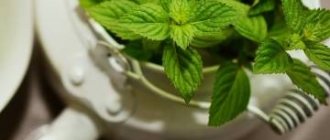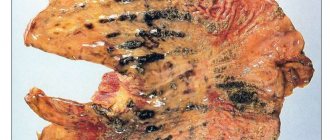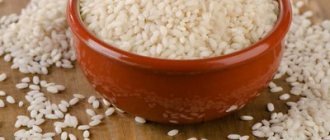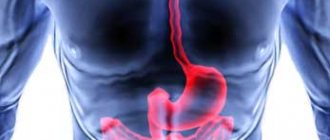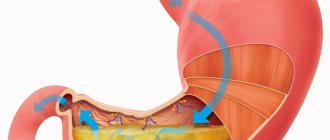Features of homeopathy treatment for gastritis
A person diagnosed with gastritis knows firsthand the difficulty of getting rid of such a disease.
Therapy for gastritis includes a number of therapeutic areas that are based on taking medications, proper nutrition, and maintaining a healthy lifestyle. Often, traditional medicine is used in complex therapy or homeopathic substances to enhance the effect. The main reasons for using homeopathy for gastritis are the following situations:
- Lack of positive results from traditional treatment methods for a long time.
- The presence of allergies or serious side effects to taking standard medications.
- The patient has a number of concomitant diseases that are a contraindication to taking medications for the treatment of gastritis.
Such indicators force the patient to give up problems with the digestive system and look for alternative methods of getting rid of the disease.
Unlike traditional medicine, where doctors, when prescribing medications, are guided by patient tests and research results, the following data is important for a homeopathic doctor:
- Where and under what circumstances did the first manifestations of gastritis occur? The homeopathic doctor finds out from the patient what events preceded the appearance of the first signs of the disease. These may be stressful situations due to family problems, troubles at work, poisoning of the body while taking medications, junk food or alcoholic beverages. Such information allows a specialist in the field of homeopathy to find out the primary sources of the manifestation of the disease, since the specifics of treatment depend on the cause.
- Specifics of the symptoms of the disease. The doctor is interested in the intensity of the pain and the region of its manifestation, the accompanying indicators of the disease that bother the patient.
- Patient's attitude towards the disease.
Based on such indicators, the doctor prescribes medications individual for each patient, which tend to improve the patient’s condition. It is worth noting that sometimes people with completely different diagnoses may be prescribed identical medications. This is not the homeopathic doctor's mistake. The fact is that homeopathic remedies are not intended to treat a specific disease, but to eliminate the peculiarities of the body’s manifestations and symptoms. Different diseases with similar symptoms can be treated with similar drugs, and treatment with the right choice of drugs by a doctor will give positive results.
In what cases is homeopathy used for gastritis?
Homeopathic remedies are often used in cases where traditional treatments become impossible or useless.
Reasons for refusing traditional methods of treatment:
- Classical medicine has not given a positive result for a long time,
- allergic reactions to traditional medications,
- serious side effects of traditional medicines,
- The presence of diseases for which it is not recommended to use drugs prescribed for gastritis.
Treatment of gastritis with homeopathy does not require a complete abandonment of allopathy. Homeopathic remedies can act as a complement to classical treatment.
What is important when selecting
For a homeopathic doctor selecting a complex of drugs, the following information will be important:
- the root cause of the disease. The patient is asked to remember at what point in his life the first signs of the disease appeared, whether this was associated with any events or changes in lifestyle;
- what sensations the patient experiences. It is necessary to study all the symptoms of gastritis, their nature and characteristics;
- at what time the improvement and deterioration of the condition is noticed;
- patient's attitude towards the disease.
Such detail allows you to find an individual remedy for each person suffering from gastritis, ideally suited for him.
Reflux disease with cough in a child at night
Often, a chronic cough at night occurs against the background of the development of reflux disease, which occurs due to the backflow of food from the stomach into the esophagus due to insufficiency of the cardia of the digestive organ. When a child sleeps, he is in a horizontal position with relaxed muscles of the body and internal organs. A weak cardia of the stomach cannot ensure sufficient closure of the inlet to the organ, therefore, with minor movements of the child, the contents return back into the esophagus, which causes a severe suffocating cough.
In adults, the disease manifests itself more often after eating with severe bloating and heartburn. In order not to aggravate the process, patients should not lie down after eating, but rather walk around until the food is partially digested. To improve the functioning of the gastrointestinal tract, the homeopath prescribes Nux vomica, Azafoetide or other medications according to individual criteria.
Homeopathic remedies for the treatment of diseases of the gastrointestinal tract
Homeopathy has a number of remedies that have excellent effects on the gastrointestinal tract. Some of them should be discussed in more detail, since in case of digestive disorders they often act as the main remedy. When choosing the right remedy, it is important to take into account not only the corresponding symptom, for example, stomach pain, but also all the characteristic phenomena associated with this disease. They must correspond exactly to the homeopathic remedy, which can cause similar symptoms in an undiluted state. The decisive role is played, first of all, by the patient’s state of mind, since during illness it often changes. Thus, a usually kind and friendly person, having fallen ill, suddenly becomes intractable, irritable, or even ferocious. Individual characteristics that characterize a certain type of person are characteristic of people during illness, but they are not characteristic of them in their healthy state. Appropriate circumstances that worsen or improve the patient’s condition will help in searching for the necessary homeopathic remedy.
Nux vomica (emetic nut seeds) is one of the main remedies for cramping abdominal pain that occurs during or immediately after a meal and may be accompanied by heartburn, nausea, vomiting, lack of appetite, a feeling of fullness or severe bloating. Nux vomica is an ideal remedy for stomach diseases; it is especially effective if the causes of the disease are stress, lack of sleep, fatigue from overwork and irritation. Nux vomica also helps well in cases where pain occurs after drinking coffee, smoking or drinking alcohol.
The patient is characterized by an irritated state not only of the gastrointestinal tract, but of the entire body, and therefore he wants to be left alone. The patient is in an extremely nervous state, reacts irritably when addressed to him, and makes a gloomy face. Noises and especially footsteps get on his nerves, which increase his irritability and headaches. Sometimes patients think that they have a serious illness and should die soon.
The condition worsens from cold, irritation, noise and in the morning. Relief comes from exposure to heat, at rest, after a short sleep and lying on your side.
People of this type are ambitious and work hard (“workaholics”), and are prone to irritability and short temper. They are pronounced “morning grumblers”; they love fatty, spicy foods, and coffee as a stimulant, which they do not tolerate well. Children are usually overactive, nervous, often willful or stubborn, and are sometimes prone to violent temper tantrums.
Arsenicum album (white arsenic) helps with vomiting and severe, painful diarrhea, sometimes with blood, and is also an excellent remedy for food poisoning.
Patients suffer from burning pain especially severely if it is associated with timidity, a feeling of intense anxiety and fear of death. Therefore, during illness, patients do not like to be alone. They want someone to be nearby and be able to come to their aid if necessary.
The condition is worse from exposure to cold, from cold food and cold drinks, and also at midnight. It improves from exposure to heat, from warm food and warm drinks, and from lying down with the head elevated.
People of this type are, as a rule, very pedantic and always dressed correctly (like “hatched from an egg”). Disorder is unbearable for them, they are prone to envy and greed. As children, they are very neat and have an aversion to anything that might get them dirty.
Lycopodium (moss moss) is a wonderful remedy for the treatment of many diseases of the liver and gall bladder; it helps with severe bloating with rumbling and a feeling of constant fermentation.
Characterized by a feeling of fullness, bloating and a feeling of fatigue after eating. Usually the patient begins to feel real hunger after eating. Increased appetite appears late in the evening or even at night. Symptoms of malaise are localized mainly in the right side of the body, and noticeably intensify in the afternoon around 16:00. Patients who need Lycopodium ask for warm food and warm drinks, when they seem to need cool drinks.
The condition is worsened by exposure to heat, including from bed, in a warm room, and between 4 and 8 p.m. It improves with movement, warm food and warm drinks, cooling the body and opening up.
Lycopodium affects people with little sense of self-worth and suffering from fear of failure. Outwardly, they often try to hide this with their decisive, sometimes even arrogant, presentation and tendency to exaggerate. At home, such a person behaves like a tyrant and power-hungry, but in front of important people he is prone to servility. This is manifested already in childhood by restraint and obedience in front of strangers, in contrast to demanding behavior in a close family circle.
Carbo vegetabffis (charcoal) helps with ailments caused by too slow digestion and associated with painful, severe bloating, weakness, exhaustion and timidity. It helps if you experience belching and bloating after each meal (regardless of the type of food), as well as with diseases caused by rich or fatty foods.
This type of patient is characterized by poor local blood circulation and insufficient oxygen supply. Therefore, ailments are often accompanied by a bluish color of the skin, especially the face, arms and legs.
The condition worsens in the evening, when lying down, from fatty foods and warm, humid weather. It improves from fresh cool air and after belching.
Important traits of such people are lack of vital energy and cowardice. For the most part, we are talking about people who get tired very quickly, who have poor memory, or who have not yet recovered from a previous illness.
Ipecacuanha (emetic root) helps with prolonged nausea and vomiting. Its action extends mainly to the autonomic system of the stomach and chest. It helps well with spasms in the bronchi, for example, with asthma or whooping cough, as well as with spasmodic vomiting.
It is characteristic that the tongue is not coated, as is the case with many diseases of the gastrointestinal tract, and vomiting is accompanied by copious salivation. The vomit is often green in color. Ipecacuanha is especially effective if diseases are caused by difficult-to-digest foods. It is an excellent remedy for vomiting caused by cough, and therefore also helps with whooping cough.
The condition worsens with humid, warm wind and lying down.
Ipecacuanha works best on overweight children who are weak and prone to colds even in mild weather.
Anacardium (anacardium nut) has a beneficial effect on the body in case of nervous weakness, moral exhaustion and stomach diseases due to nervousness, helps against nausea and vomiting due to inflammation of the gastric mucosa or stomach ulcers and is an excellent remedy for fear of exams.
It is typical to feel as if there is a peg or plug in the stomach; after eating, the condition improves.
The condition worsens in the morning, and also in the evening until midnight from exposure to cold, cold food and cold drinks, and also at midnight. It improves temporarily after eating, but the pain returns after about two hours.
People of this type suffer from poor memory and lack of concentration, are prone to depression, irritability and disturbances in the senses of perception (smell, vision and hearing). Sometimes they may develop a tendency to commit evil acts and become cruel.
Antimonium crudlum (antimony) acts mainly on the gastrointestinal tract, helps with heartburn, poor appetite, belching, nausea, vomiting and diarrhea, alternating with constipation. Illnesses are often caused by frustration or irritation. An aversion to cold compresses and touch is characteristic.
The condition worsens from bathing in cold water and washing, as well as from heat and acidic foods. It improves temporarily in the open air, from fresh cold winds and at rest.
People for whom Antimonium crudium is effective are often sullen, dissatisfied, irritable and greatly concerned about their health. They are very prone to being overweight and have thin legs. Children really don't like being touched or even looked at, and they also don't like to wash themselves.
Colocynthis (gentian root) is an important homeopathic remedy for all excruciating colicky pains in the stomach, which are so severe that the patient literally “crouches over.” The cause of such pain is cold and irritation.
Phosphorus (yellow phosphorus) is an important homeopathic remedy for neurasthenia, exhaustion, timidity and fear, mental disorder and instability of the autonomic nervous system. Therefore, it acts on the gastrointestinal tract, for example, with sour belching or vomiting after each meal, with weakening diarrhea, severe bloating with the release of foul-smelling gases. In addition, this homeopathic remedy helps in the treatment of inflamed and irritated mucous membranes with a tendency to tissue destruction and bleeding.
Characterized by weakness, fear of serious illnesses such as cancer, as well as a tendency to fainting and bleeding.
The condition worsens when the weather changes, lying on the left or sore side, during stress and thunderstorms, as well as from hot drinks and food. It improves by lying on the right side, by cold food (but it is immediately regurgitated), in the open air, by washing with cold water and during sleep.
Phosphorus works best in people with delicate limbs who are generally friendly, compassionate, sensitive and attentive. Their fear of the possibility of a serious illness is so great that these people can be classified as hypochondriacs. They are overly sensitive to loud sounds, and therefore are very afraid of thunderstorms as children.
Pulsatilla pratensis (anemone) is a typical feminine remedy, but has a wide range of effects on the gastrointestinal tract. It acts against pressing, spasmodic pain and heartburn that appear immediately after eating. The patient has a strong aversion to fatty foods and a need for attention. Characteristic is the absence of thirst, which accompanies almost all diseases. The pain changes its location and its main symptoms many times. In women, there is often a relationship between the onset of the disease and menstruation.
The condition worsens from exposure to heat, in a warm room, from fatty foods, when lying on the left or sore side. It improves with walks in the fresh air and exposure to cool air.
Pulsatilla pratensis is especially indicated for gentle women who change their mood easily, have an average temperament, are usually indecisive and cry easily. Patients do not like to be alone if they are sick, but not because of fear of death, but rather because they feel the need to lean on someone and hear words of comfort.
Chamomilla (chamomile) is a typical children's remedy, but also helps adults. It is effective for acute diseases, relieves spasms and delays inflammatory processes in irritated mucous membranes. Therefore, Chamomilla is effective for many inflammations and childhood diseases. In case of diseases of the gastrointestinal tract, this remedy can be used for belching, nausea and severe bloating with pinching pain in the abdomen.
Patients are characterized by severe irritability, sometimes even attacks of anger, which accompany all diseases. Small children cry and scream loudly until they are picked up. It is typical that patients' entire face turns red, or one cheek may turn red while the other remains pale.
The condition worsens from irritation and excitement, at night and on the street. It improves with attentive attention and care, in children - by carrying them in your arms.
Each of these remedies can independently help with diseases associated with digestion, but only if its characteristic properties correspond to the picture of the disease. It is difficult even for a specialist to choose the right remedy, so for self-treatment it is safer to choose a proven combination of remedies. In homeopathy, it is not advisable to take all important remedies at the same time, since some counteract others and can even negate their effectiveness. Combinations that harmonize with each other and complement each other in their healing effects have proven themselves well. In addition, they include drugs that do not have a broad effect on the entire body, but have a clearly limited effect on the digestive organs.
The essence of homeopathic treatment
Many chronic diseases are misunderstood and their causes are unknown. This makes the use of traditional medicines ineffective and in some cases useless.
Homeopathy is based on the principle of treating like. Therefore, for a doctor specializing in homeopathy, the most important thing is not the diagnosis of the patient, but the combination of symptoms. Prescription drugs are prescribed based on the similarity between the symptoms of a disease and the symptoms that occur when substances contained in a homeopathic medicine enter the body in large doses. In the preparation itself, these substances are used in small and very small doses.
Homeopathy excludes self-medication, since it requires a lot of experience and professionalism. The doctor must take into account the individual characteristics of the patient. Drug complexes prescribed to different patients with gastritis can vary significantly.
Because of the relationship between homeopathy symptoms and medicines, the same medicines are prescribed for different diseases if they have similar symptoms. This allows you to choose a medicinal complex that will not harm the body.
Basic principles of homeopathy treatment
The homeopathic doctor, based on the symptoms indicated by the patient, compares them with possible symptoms that appear in a healthy person if he uses any active substances.
Different diseases can sometimes be treated with the same drug. As for human treatment, the approach to each patient must be individual. The doctor draws up a special treatment program, which is carried out taking into account many important points and depends on the characteristics and severity of the disease, as well as the physical structure of the person.
Medicines are recommended to be used in small doses, even very small ones. These doses are just that, because quite often toxic substances are used in the treatment of gastritis with homeopathy. Medicines may include:
- Any plants suitable for the treatment of gastritis.
- Various metal derivatives.
- Minerals.
A very interesting fact in the method of preparing medicines is that homeopathy uses a process for making medicines that has not changed and remains the same as a hundred years ago.
Symptoms
The acute course of the disease and exacerbation of the chronic inflammatory process in the gastric mucosa have the same clinical course. The only difference will be the intensity of the symptoms.
Thus, the main symptoms of hyperacid gastritis are presented:
- constant dull pain in the abdomen, which tends to intensify after each meal;
- heaviness and discomfort in the epigastrium;
- disruption of the bowel movement process, which is expressed either in alternation of constipation and diarrhea, or in the predominance of one of the manifestations;
- belching with a sour smell;
- heartburn or burning in the chest area;
- intestinal colic;
- night or “hungry” pain in the abdominal area;
- an increase in the size of the anterior wall of the peritoneum;
- coated tongue with a white or gray coating;
- decreased or complete lack of appetite;
- constant nausea with repeated vomiting;
- profuse sweating;
- attacks of dizziness;
- increased salivation;
- the appearance of bad breath;
- increased heart rate;
- pain and pressure in the heart area;
- excessive gas formation;
- general malaise;
- decreased performance.
If the above symptoms appear, you should seek qualified help as quickly as possible, otherwise the possibility of developing life-threatening complications cannot be ruled out.
GASTRITIS
Kali bichromicum 3, 6 - erosive gastritis, when there is a lot of mucus in the stomach, there is vomiting mixed with blood and bile.
Ipecac 3X, 3 - is prescribed mainly for superficial gastritis, for alimentary toxic infection; reduces nausea, vomiting, indicated when there is blood in the vomit.
Arsenicum album 3, 6 - antiseptic and anti-inflammatory agent; is prescribed for deep lesions of the stomach (erosive gastritis), accompanied by burning pain with increased thirst and predominantly nocturnal worsening.
Bismuth subnitricum 3, 6 - for stabbing pain radiating to the back.
Arnica 3X, 3 - acute gastritis after overeating, indicated for pain that intensifies after eating, vomiting streaked with blood.
Millefolium 2X, 3X - indicated in the presence of blood in the vomit.
Belladonna 3X, 3 - acute gastritis with chills, fever, severe facial hyperemia and general agitation.
Veratrum viride 3X-3 - acute gastritis with a tendency to weaken cardiac activity.
Bryonia 3X, 3 - reduces pain sensitivity of the stomach and intestines. Recommended for stomach pain that worsens with movement, physical work and after eating large meals; it is indicated for perigastritis and periduodenitis.
Antimonium crudum 3 - reduces dyspeptic symptoms; The indication is a tongue thickly coated with white coating.
Camphor Rubini 2X-3X - acute gastritis with high acidity, sour vomiting, heartburn, belching.
Veratrum album 3X, 3 - relieves all dyspeptic symptoms, reduces the inflammatory process in the gastric mucosa, and mitigates the effects of general intoxication.
Chronic anacid gastritis.
Pulsatilla 3X, 3 is most effective for persons with a labile nervous system, prone to tears, easily excitable, in the presence of symptoms characteristic of Achilles gastritis with unstable stool, with a predominance of diarrhea.
Hina 2X, 3X - increases appetite, improves the secretory function of the gastric glands. Indicated for pain that worsens at night and after eating, for thirst and in hot weather. Indications: bitter taste in the mouth, aching sensation after eating, profuse loose stools after each meal.
Kali bichromicum 3 - reduces inflammatory swelling of the mucous membrane, reduces mucus formation, vomiting.
Graphite 6, 12 - improves gastric motor function and helps reduce stagnation. Distinctive features: aversion to meat and fatty foods.
Colocynth 3X, 3, 6 - reduces stomach pain of any origin and dyspeptic symptoms such as vomiting and colic. For persistent neuralgic pain and colic, staphysagria 3X, 3 and dioscorea 3X-3 are also recommended:
Veratrum album 3X, 3 - reduces burning pain, relieves deep inflammation in the stomach tissue, reduces vomiting and diarrhea.
Colchicum 3X, 3 - for gastritis, accompanied by frequent vomiting when bile is thrown into the stomach.
Podophyllum 6 - prescribed for Achilles gastritis, accompanied by enteritis, secondary hepatocholecystitis; vomiting and diarrhea, more often in the morning; 3X division is advisable if constipation predominates.
Sulfur 3–6 - chronic gastritis with a sluggish course, poor digestion of food, vomiting.
Phosphoricum acidum 3X-3 - indicated for Achilles gastritis, secondary enteritis without significant loss of nutrition.
Bryonia 3X, 3 - increases the muscle tone of the stomach, regulates secretory and motor functions, is prescribed for a feeling of heaviness in the stomach and a feeling of thirst, as well as for pain that is aggravated by movement. Distinctive feature: tongue thickly coated with white coating.
Gastritis with increased acid formation (gastroduodenitis).
Argentum nitricum 3, 6 - reduces secretion and pain; reduces the inflammatory process in the gastric mucosa.
Homeotherapy for stomach pain
A combined method for treating stomach pathologies. It includes taking classical and universal homeopathic remedies. This allows you to cure a patient with acute manifestations of the disease, and achieve a high effect in relieving severe chronic forms.
Classical homeopathy is prescribed after communication with the patient, and universal homeopathy is determined on the basis of electropuncture diagnostics based on the bodily meridian points of the body. The patient is monitored throughout the course to adjust the therapeutic regimen. An overdose of certain medications is dangerous, as they are made on the basis of poisons.
Recommendations for therapy with classical drugs:
- drug dilutions: low (up to 6 C); medium (from 6 to 30 C); high (above 30 C);
- take 20 minutes before meals by sucking 5 grains;
- Treatment of acute forms is carried out by frequent administration - up to 4 times a day with a dilution of 6, 12 and 30 C;
- at the stage of exacerbation subsiding, the dose is gradually reduced to once a day;
- for chronic pathologies, the dose varies from once a day or every 90 days;
- prevention is carried out by taking granules once every 3 weeks or once every 30 days;
- high dilutions (50, 200 and 1000 C) are used for long-term chronic pathologies 1-2 times every 7 days.
What homeopathic medicines can be prescribed?
Which homeopathic remedy will be prescribed for gastritis depends on the symptoms that torment the patient.
Most often, the following drugs are prescribed for gastritis:
- Nux vomica, chilibukha or emetic nut. Helps with dyspepsia, nausea, vomiting, flatulence, morning belching, heaviness after eating.
- Arsenicum album or white arsenic oxide. It is prescribed if the patient experiences pain, has difficulty tolerating the sight and/or smell of food, experiences severe thirst, nausea, vomiting, and heartburn.
- Ipecacuanha. Useful for excessive salivation, constant nausea and vomiting, including with bile, mucus or blood.
- Argentum nitricum or silver nitrate. Used for severe belching, severe pain after eating.
- Bismitum subnitricum. Indications for the use of this drug are excessive vomiting.
- Carbo vegetabilis, vegetable or charcoal. Prescribed for poor digestibility of food, excessive formation and accumulation of gases in the gastrointestinal tract, belching.
- Graphites or graphite. Indicated for dyspepsia and constipation.
- Wintergreen or Wintergreen. Take for prolonged vomiting, uncontrolled appetite, pain.
- Phosphorus or phosphorus. This drug is prescribed for a strong desire for cold food and drinks, vomiting, after the liquid drunk becomes warm in the stomach.
- Potassium bichromicum or potassium dichromate. This drug should be taken for dyspepsia, aversion to water, desire for sour things, nausea and vomiting, and a feeling of heaviness after eating.
- Oxalic ac. Prescribed for pain, diarrhea, bitter and sour belches.
- Veratrum album. Prescribed for vomiting with profuse diarrhea, exhaustion, cutting pain in the intestines.
- Ignacia. It is prescribed for nausea, vomiting, hyperacidity, and stomach pain.
- Locust. Helps with increased acidity, sour vomiting, burning sensation.
- Tsina maritima. Prescribed for flatulence, fermentation of food, rumbling stomach, colic.
- Antimonium crudum. It is prescribed for a milky-white coating on the surface of the tongue, severe gas formation, belching, and a desire for spicy and salty foods.
Treatment of gastritis with homeopathy preparations
Homeopathic treatment of gastritis is aimed at eradicating the causes of the disease and returning the gastrointestinal tract to normal.
Sulfuricum acidum or sulfuric acid in the third decimal, third, sixth and twelfth dilutions is used for chronic gastritis, when the patient complains of coldness in the abdomen, vomiting and diarrhea.
Antimonium Crudum or antimony black sulphide is prescribed in case of gastritis if the following symptoms are present. Patients feel fullness and heaviness in the stomach even if they have not eaten, experience an aversion to food and a burning sensation in the rectum. Homeopathic medicine is used in the third and sixth dilution.
Gastritis with high acidity - treatment
Today, medicine classifies almost ten different types of gastritis, and each of them is divided into several stages and forms of development. This is not easy, because in order to effectively treat any disease, you must first assess the condition of the organ or system as deeply as possible, establish the correct diagnosis so that the treatment does not turn out to be erroneous or inadequate. Knowing the exact clinical picture of the patient’s stomach condition, the type, stage, form of gastritis, the treatment will be determined by the doctor based on these detailed data for each specific patient:
- Gastritis is treated by a gastroenterologist.
- Before treatment, the doctor must carefully examine the patient’s medical history, his general health, concomitant diseases, including the gastrointestinal tract, in order to clarify possible contraindications for taking certain medications.
- According to FGSD, the doctor determines the type, stage and form of gastritis, the acidity of gastric juice and finds out the causes of the disease.
- The effectiveness of treating gastritis with high acidity depends on the severity of the inflammatory process, its type and on the discipline and responsibility of the patient himself, since with any treatment, medication, folk remedies - without following a diet and eradicating bad habits, it is impossible to cure gastritis.
Today, when selecting therapy, gastroenterologists rely not on the acidity of the stomach, but on the condition of the mucous membrane according to FGDS. In case of acute gastritis, symptomatic therapy is first prescribed, since at the beginning it is necessary to reduce pain and reduce inflammation, and this is possible by reducing the production of hydrochloric acid, that is, with the help of drugs that neutralize acidity, and of course, following a diet.
Anesthesia
Severe pain syndrome is relieved by antispasmodics (No-shpa, Drotaverine hydrochloride), or m-cholinergic blockers (metacin, gastrocepin) or antacids with local anesthetics (Almagel A).
Antacids
These are drugs that neutralize gastric acid. Modern antacid medications use a competent combination of magnesium and aluminum compounds. With antacids, the effect does not occur immediately after use, since they are practically not absorbed into the blood. But at the same time, the therapeutic effect is prolonged for a longer time, moreover, these drugs have an antiseptic and adsorbent effect. Such means include:
- Phosphalugel, Gasterin - contains aluminum salt of phosphoric acid.
- Almagel, Maalox, Gastratcid, Altacid, Palmagel - containing aluminum-magnesium combinations.
- Topalkan, Gaviscon - composed of aluminum-magnesium-silicon combinations with the addition of alginate.
- Talcid, Gastal, Rutacid are combinations of aluminum, magnesium and calcium compounds.
Medicines, proton pump blockers
Omeprazole, rabeprazole, lansoprazole and drugs based on them that reduce the secretion of gastric glands. H2 histamine receptor blockers (Famotidine, Ranitidine) are considered obsolete, second-line drugs. The effect of these drugs is due to the effect on the mucosal cells so that hydrochloric acid is practically not released into the lumen of the stomach. Therefore, the use of such drugs for gastritis with high acidity reduces the acidity of the stomach for a long time, while irritation of the mucous membrane also decreases.
To do this, it is enough to donate blood using ELISA and determine antibody titers. However, in 90% of people these microorganisms are always present in the gastric juice, only in moderate quantities, and do not in any way affect the development of pathological processes. If Helicobacter is present in the gastric contents in increased quantities, then this is a provoking factor in the occurrence of gastritis, but not its root cause.
If, after the examination, the test results indicate an increased proliferation of these microorganisms, the doctor may prescribe appropriate treatment. Proton pump blockers are prescribed, as well as antibiotics - amoxicillin + clarithromycin or amoxicillin + de-nol and trichopolum.
Causes of gastritis and duodenitis
Inflammatory processes are caused by the bacteria Helicobacter pilori and nutritional problems, including abuse of spicy and hot foods, as well as other excesses. Gastritis and duodenitis can be triggered by alcoholic drinks, smoking and very frequent medications. Finally, gastric ailments are often caused by various chronic diseases, such as cholelithiasis, colitis, liver disease, and so on. The development of chronic gastritis is also influenced by depression and neurosis.
Homeopathy for gastritis
Treatment can be especially effective using homeopathic remedies. They are taken for a long period in a certain dosage. In some cases, it is enough to take three granules every six months, while other products are used three times every day.
Your doctor may use the following medications:
- arsenicum album – normalizes acidity levels and relieves inflammation;
- nux vomica – improves digestion processes, relieves signs of intoxication;
- magnesium phosphoricum – relieves pain and eliminates spasms from the digestive organs;
- argentum nitricum – reduces the acidity of juice and thereby eliminates heartburn;
Homeopathic medicines are used to treat gastritis
- Anacaridium - used to eliminate hunger pains;
- zinc valerianicum – normalizes the nervous system and relaxes;
- bismuth nitricum – copes with pain radiating to the lower back.
Drugs are used in a certain potency. It is determined purely individually. To improve digestion, you can additionally use enzyme preparations such as Mezim, Festal and so on. They are determined by a doctor depending on the condition of the neighboring digestive organs. At the same time, a diet must be followed. The use of folk recipes is allowed, but only under medical supervision.
Treatment for gastritis should continue throughout life. This is the only way to achieve stable remission and prevent the development of dangerous complications.
If the condition worsens, it is important to begin full treatment on time using medications prescribed by a doctor.
The video will introduce the principle of action of proton pump inhibitors:
If a person is worried about inflammation of the stomach, he wants to take some strong pills for gastritis that can instantly improve his condition. However, in this case, you should not take the first medicine you come across in order to avoid possible complications. Medicines are prescribed only by a doctor after examination and an accurate diagnosis.
Side effects and contraindications
Homeopathic remedies have virtually no side effects, however, you must strictly adhere to the dosages prescribed by your doctor to prevent an overdose. This primarily applies to drugs containing particularly toxic elements.
Contraindications to the use of homeopathic medicines relate exclusively to the treatment of certain diseases, such as malignant tumors, tuberculosis, diseases requiring surgical intervention, acute infectious diseases. But the presence of these diseases is not a contraindication for the treatment of gastritis with homeopathy.
Homeopathy has a cumulative property and cannot have an immediate effect, so this type of treatment is prescribed only after the acute period of the disease has passed.
Antiviral for gastritis
Viruses are a special group of microorganisms that cause diseases that a person encounters throughout his life. . They occupy a borderline position between living and nonliving matter and do not have a cellular structure; their size varies from 8 to 180 nm, so they can only be seen using an electron microscope. Viral infection is one of the causes of gastritis.
The most common etiological factor in the development of inflammatory changes in the gastric mucosa is Helicobacter pylori infection. However, in recent years there has been a tendency towards an increase in the association of gastritis with other etiological factors: autoimmune gastritis, NSAID-associated, as well as virus-associated lesions of the gastric mucosa.
In persons with virus-associated gastritis, asthenic syndrome may come to the fore, manifested by headache, severe weakness, decreased tolerance to physical activity, and even hyper- or hypothermia, and among routine laboratory tests, the detection of lymphocytosis in a general blood test is typical.
The Epstein-Barr virus from the herpesvirus family can provoke chronic gastritis.
Herpes viruses (Herpesviridae) for gastritis
To date, the role of a number of viral infections in the formation of chronic gastritis has been proven, among which the family of herpes viruses (Herpesviridae), numbering about 80 species, is of greatest pathogenic significance. With viral lesions, erosions, ulcers and signs of follicular changes are detected more often than with the influence of other etiological factors, with the possible exception of NSAIDs. The ulcers are multiple in nature, have different sizes, often with clear contours and a clean bottom.
If the etiological factor is CMV infection, then in addition there is tuberosity of the gastric mucosa with subepithelial hemorrhages. And for gastritis caused by herpes simplex virus types 1 and 2, and Varicella zoster, endoscopic examination of the upper intestinal tract is characterized by the identification of multiple small ulcers.
Epstein-Barr virus for gastritis
The Epstein-Barr virus from the herpesvirus family can provoke chronic gastritis. Having penetrated the body, a herpes infection never leaves it. When the immune system fails, the Epstein-Barr virus is activated, causing an additional blow to the immune system, infecting the cells of the mucous membranes of the stomach.
Coronavirus is an acute viral disease characterized by primary damage to the respiratory system and gastrointestinal tract
As a result, autoimmune gastritis develops. To identify a herpes infection, doctors conduct complex studies to determine its type and degree of activity. For autoimmune chronic gastritis caused by the Epstein-Barr virus, antiviral drugs are included in the treatment regimen.
Coronavirus for gastritis
Coronavirus is an acute viral disease characterized by primary damage to the respiratory system and gastrointestinal tract. Coronavirus is a zoonotic infection in origin.
To date, the pathogenetic mechanisms of the development of coronavirus infection have not been sufficiently studied. The entry point for infection is the mucous membrane of the upper respiratory tract. When infected by the 2019-nCov pathogen, infection rapidly spreads to the bronchi and lungs. With the fecal-oral transmission mechanism, the disease manifests itself in the form of damage to the gastrointestinal tract.
Differential diagnosis of coronavirus is carried out with rhinovirus infection, MS infection, bacterial and viral gastroenteritis (read about the differences between coronavirus and gastroenteritis here). Treatment of mild or moderate coronavirus includes symptomatic treatment - drugs to reduce fever, antitussives, drugs for the common cold, etc. The treatment of severe forms of coronavirus is based on drug therapy. These are antiviral drugs; specific immunoglobulins; corticosteroids.
Causes, types and symptoms of duodenitis and gastritis
The main reason for the development of a pathological process in the gastrointestinal tract is the presence of the bacterium Helicobacter pylori in the body, as well as disturbances in diet. In addition, diseases can provoke chronic pathologies of nearby organs: liver, gall bladder, etc.
The following types of gastritis are distinguished:
With the right treatment, you can cope with acute gastritis within a week. But, after the acute symptoms are relieved, you will need to adhere to a strict diet for a long time.
Chronic gastritis is caused by the bacterium Helicobacter pylori. The chronic form of the disease does not manifest itself for a long time, but the gastric mucosa is gradually destroyed. Healthy cells are replaced by connective tissue. The disease takes a long time to be treated.
- The acute form is characterized by nausea and stomach pain, constant belching. In addition, the patient complains of severe weakness and chronic fatigue syndrome. In severe cases, stomach bleeding may occur.
- In the chronic form of gastritis, poor appetite, problems with stool, bad breath, weakness and irritability are noted.
You can get gastritis and duodenitis at any age, but the risk group includes children of preschool and primary school age, patients who drink and smoke, as well as people who are overweight.
Diagnostics
The following laboratory and instrumental research methods are used for diagnosis:
- pH-metry – determination of acidity directly in the stomach cavity;
- gastric intubation with sampling of gastric juice - a tube is inserted into the stomach through which a portion of gastric juice is taken, then the concentration of hydrochloric acid in it is determined in the laboratory;
- fibroesophagogastroduodenoscopy (FEGDS) - using a fiber optic tube with lighting and a camera, you can directly see the condition of its mucous membrane.
When the first symptoms of gastritis appear, you should consult a gastroenterologist for additional examination and adequate treatment.
Nutrition for gastritis
The main part of treating stomach inflammation is nutrition and diet. The menu for gastritis excludes: fried, fatty, sour, smoked, salty dishes, rich broths. Food for the patient is prepared with a small amount of salt and spices. The patient is recommended to consume viscous or liquid porridges, boiled meat and fish, light broth, and jelly daily.
A diet for gastritis is developed by a specialist. When treating patients with high acidity, products that reduce the secretion of hydrochloric acid are recommended: milk soups, steamed or stewed vegetables, sweet fruit juices.
Patients with low acidity are advised to consume: fermented milk products, lean meat, rice. You need to eat food 5-6 times a day.
Dysbacteriosis
Homeopathic treatment for dysbiosis caused by the activity of pathogenic microorganisms in the intestines is possible in all cases. Classical medicine is ineffective in this case, since taking strong medications often leads to an imbalance of the bacterial flora. Prescribed drugs relieve unpleasant symptoms, therefore they are selected according to clinical manifestations and the reasons that led to the disease:
- “Colocyntis” - with an acute manifestation caused by psycho-emotional overexcitation;
- “Graffites” - elimination of illness after dysentery, intestinal operations;
- "Antimonium crudum" - poisoning with stale food;
- “Aloe” - eliminates a sharp urge to stool with pain;
- "Calcarea carbonica" - for intolerance to dairy products;
- "Hamomilla" - eliminates gases, sour belching, dysbacteriosis caused by stress, overeating;
- “Bryonia” - for dysbacteriosis with liver diseases;
- "Argentum nitricum" - for excessive consumption of sweets;
- “Nux vomica” - for overeating, alcohol abuse;
- “Acidum nitricum” - for prolonged dysbacteriosis with ulceration of the mucous organs of the gastrointestinal tract;
- "Arsenicum album" - after malaria, salmonellosis, hepatitis, long-term use of strong medications;
- “Belladonna”, “Pulsatilla” - for providing emergency care in case of sudden manifestations of dysbacteriosis.
https://youtube.com/watch?v=eTlP35BObuA
Treatment of gastritis with high acidity
Modern medicine has a dozen classifications of gastritis, each of which is divided into stages and forms of the developing process. Having determined the form, type, stage and condition of the disease, a course of treatment is prescribed. A gastroenterologist chooses the methods.
The patient undergoes a gastroscopy examination. The procedure will help determine the type, stage and form of the disease, and the level of hydrochloric acid. The effectiveness of treatment depends on the severity of the inflammation. Without strictly following a dietary diet, it is impossible to cure gastritis with high acidity.
First of all, they reduce pain using symptomatic therapy. This means taking medications that help neutralize acidity and following a diet.
Drug treatment of gastritis with high acidity
To cure gastritis, conservative treatment is carried out. It is accompanied by taking a number of medications that relieve a person from pain, heartburn and other discomfort.
Medicines for gastritis have been created and used in the treatment of the disease:
- Drugs that neutralize hydrochloric acid or antacids. In modern medicine, there are products that combine magnesium and aluminum compounds. Antacids are almost not absorbed into the blood, the effect comes quickly. Physician approval is required for medication treatment. The products mentioned include Phosphalugel, Gasterin, Gastracid, Palmagel, Almagel, Maalox and others.
- Antibiotics that improve digestion.
- Medicines that coat the mucous membrane and protect against irritants.
- Drugs that help reduce the activity of glandular cells in the stomach.
- No-spa, Drotaverine, hydrochloride, metacin, gastrocepin, Almagel A, Mezim, Linex. The drugs help reduce pain. Otherwise called “antispasmodics”. The drugs eliminate diarrhea, constipation, belching, and flatulence. Mezim for gastritis helps to normalize the digestive process. The digestion of proteins and the release of bile acids are facilitated.
- If the bacterium Helicobacter pylori is detected, drugs are used. The bacterium simultaneously provokes the development of ulcers. The area where the microorganism develops is gastric juice. As a rule, the doctor prescribes appropriate treatment. If the test results reveal a high level of bacterial growth, the patient is recommended to take amoxicillin, clarithromycin, trichopolum, de-nol and other tablets for gastritis.
- For acute gastritis, the medications ranitidine and famotidine are prescribed.
Doctors advise combining selected medications to increase the patient’s chances of a speedy recovery. During treatment, you need to follow a proper diet.
Linex is considered an effective medicine that normalizes microflora. The composition includes active substances, lactose, gelatin and other useful components. Doctors prefer to prescribe this drug to patients.
A popular option is Hilak forte. Includes natural components of bacterial metabolism. This medicine, which has a quick and effective effect, can be taken in combination with other antibiotics. Hilak forte contains biosynthetic lactic acid, the effect process is enhanced.
In case of exacerbation of acute attacks of the disease, the stomach should be cleared of toxic substances. Detoxifying drugs include: polyphepan, enterosgel, activated carbon.
Often gastritis occurs due to poor nutrition, and enveloping medications are prescribed. The drugs are used as antispasmodics. Enterosgel and activated carbon are always prescribed in the form of adsorbents.
If gastritis with high acidity is detected, it is not recommended to use independent drug treatment. Any self-medication is prohibited before the gastroenterologist conducts examinations, diagnoses the disease and prescribes medications based on the individual characteristics of the patient.
It is strongly not recommended to use the medicine hilakforte without special doctor's prescription.
Homeopathic remedies for the treatment of gastritis
As already mentioned, a homeopathic doctor, based on data about the patient and his condition, prescribes individual medications that are suitable for each specific case. Self-medication with homeopathic medicines is strictly prohibited, since many of them are based on toxic substances.
The most common homeopathic medicines prescribed to people with gastritis are:
- For gastritis with high acidity, accompanied by burning and sharp pain in the epigastric region, regular nausea with bouts of vomiting, Ignacia or Robinia, which are derivatives of plants of the legume family, are prescribed. Capsicum Annum is also often prescribed for high secretion of gastric juice.
- For chronic gastritis, accompanied by diarrhea and vomiting, as well as a feeling of coolness in the stomach, Sulfuricum Acidum, or otherwise sulfuric acid, is most often prescribed.
- The causes of severe salivation, accompanied by vomiting, sometimes mixed with bile and blood, are treated with the use of Ipecac.
- White arsenic oxide or Arsenicum album is used to treat lack of appetite with aversion to food, which is accompanied by intense thirst, heartburn, and sometimes nausea and vomiting. For similar symptoms, Potassium bichromicum can also be prescribed.
- If gastritis is accompanied by severe painful symptoms after eating with accompanying indicators of heaviness in the stomach, nausea and periodic bouts of vomiting, Bismitum subnitricum, Nux vomica or Argentum nitricum can be prescribed, depending on the origin of the disease, the stage of its development, as well as the general condition of the patient.
- Poor digestion and frequent constipation are treated with Graphites.
- Using charcoal or vegetable charcoal called Carbo vegetabilis, symptoms such as flatulence, belching with a sour taste, and poor absorption of food consumed by the body are eliminated.
Diagnostics
Before starting treatment, it is necessary to conduct a thorough diagnosis. To do this, you need to conduct instrumental and laboratory studies. During the diagnostic process, you need to undergo a number of tests, including blood testing. Biochemical studies can reveal the presence of an inflammatory process in the body.
In addition, a stool test is necessary. Conduct a test for the presence of occult blood. The fact is that the erosive form of the disease is accompanied by gastric bleeding.
Bleeding may be minor, so it may be impossible to visually determine the presence of blood in the feces. Testing can reveal even minor blood impurities.
In addition, testing for Helicobacter infection is necessary. For this purpose, a blood test is carried out using the ELISA method, and a stool test using the PCR method. In addition, the infection can be detected during histological examination of a biopsy obtained during FGDS.
FGDS is an instrumental study that is carried out using a special probe. It is introduced through the esophagus into the stomach to visually examine the condition of the mucosa. The image of the mucous membrane is displayed on the monitor, so the specialist can assess the nature of the inflammation and its location.

